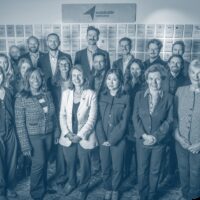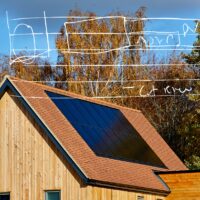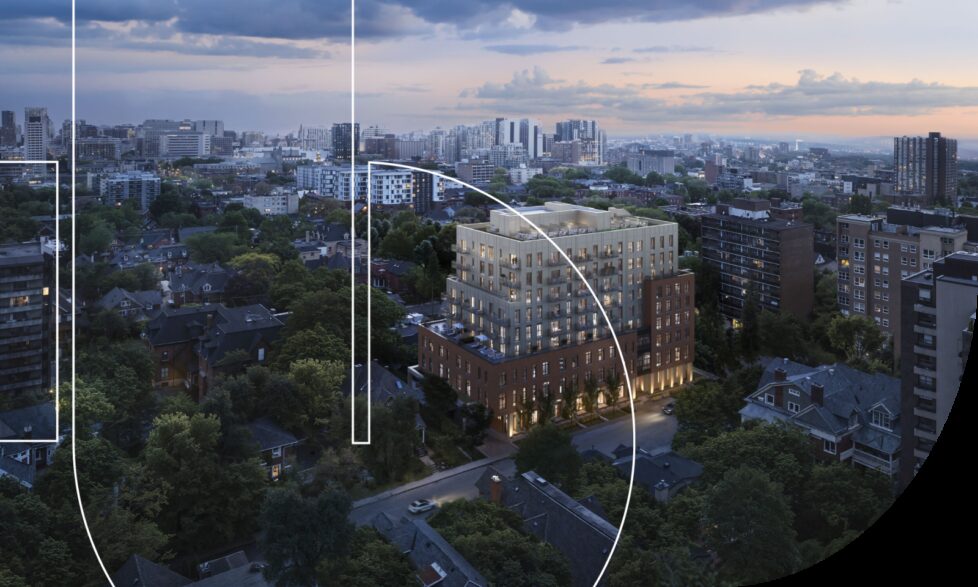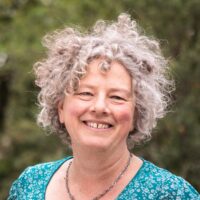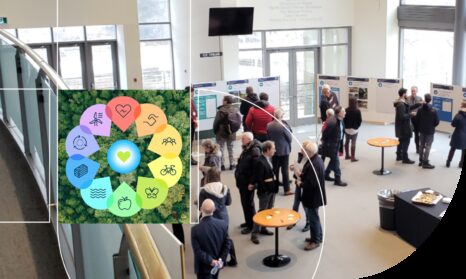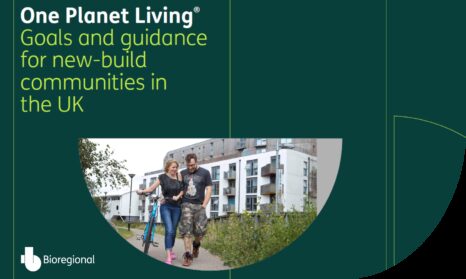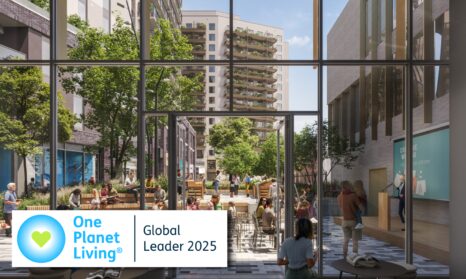Windmill Development Group shows us the future of housing
It’s been four years since Windmill Development Group, one of North America’s most pioneering green property developers, teamed up with Epic Investment Services to establish Canada’s One Planet Living Real Estate Fund.
This is the world’s first investment fund that integrates Bioregional’s globally recognised One Planet Living framework into every project and every investment decision, guiding the Fund’s commitment to sustainability, equity and climate action.
The Fund currently has 10 active real estate projects in downtown Ottawa and across the Greater Toronto Area, delivering some 2,600 homes, a mix of condominium apartments, rental apartments and co-op housing.
Every project in the Fund has its own One Planet Living action plan, deploying all 10 of the One Planet Living principles and fostering happy, healthy, sustainable communities.
As the One Planet Living Technical Lead at Bioregional, I get to liaise with the team at Windmill and their consultancy arm Urban Equation.
I see how the team have skilfully translated the One Planet Living vision and technical guidance into deliverable solutions, adapting and refining their approach for each project to build more in-house expertise.
The fund raised over $69million of investment, and as well as financing some of North America’s greenest new build communities, it also aims to deliver healthy financial returns to its investors, targeting 18% Internal Rate of Return (IRR).
Staying the course in turbulent times

The world’s real estate industry is navigating a difficult economic landscape. Rising construction costs, supply chain disruptions, and slowing property sales have forced many developers to scale back on sustainability commitments. At times, I feel like the global momentum to tackle the climate and ecological emergency is faltering.
On my calls with the Urban Equation team, I hear how the extensive Canadian forest fires, now an annual event, are impacting air quality even in Ottawa.
Against this backdrop, it would be easy to feel disillusioned, but Windmill has held firm. The company has flexed its build programme and adapted its business model, shifting emphasis from condo sales to rentals, but it has not compromised on its sustainability standards.
Every One Planet Living Fund project remains on track to achieve LEED Platinum certification, with 8 out of their 10 projects endorsed as One Planet Living Global Leaders and set to be zero carbon, with no fossil fuels used on site.
This consistency in the face of economic and political pressure is worth celebrating.
Hallmarks of One Planet Living Fund projects
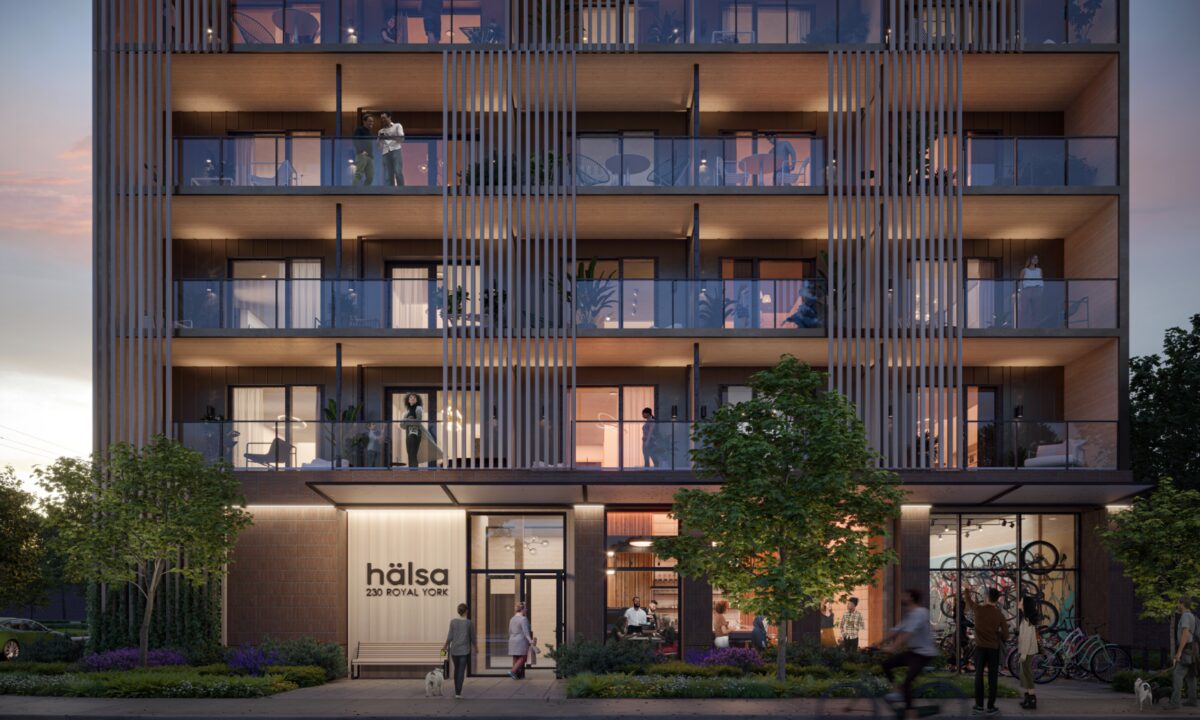
What makes the Fund stand out is the way these values are embedded across every development. Some of the defining features include:
- Sustainable locations: sites are carefully chosen for their walkability, cyclability and excellent transit links, reducing reliance on cars.
- Community partnerships: developments often grow from collaboration with local community organisations, creating long-term benefits for both residents and community partners. Examples include Parkway House, Ottawa Korean Church and The Evergreen.
- High-density, with high amenity: all Windmill projects are mid-rise to high-rise, maximising the use of precious space, meeting urgent housing needs, and so reducing the need for urban sprawl and encroachment on natural green space. Yet the shared amenities are exceptional, with rooftop gardens and communal living spaces, along with spacious, well-lit apartments.
- Zero-carbon ambition: all projects are designed to be zero carbon in operation (or very close), setting a bold benchmark for the sector. Designs include passive fabric-first strategies along with geothermal heating and cooling. Natural gas is out; electrification is in!
- World-class standards: every development is on track to achieve LEED Platinum certification.
- Water efficiency: each project is designed to halve its mains water consumption compared with the local baseline.
- Embodied carbon innovation: Windmill is pioneering low-carbon concrete solutions and using mass timber to slash embodied carbon. The company’s low-carbon concrete collaboration with Lafarge earned it the Embodied Carbon Award from the Carbon Leadership Forum in 2023. Four of the fund’s projects will use prefabricated cross-laminated timber, which delivers lower embodied carbon and allows for rapid construction delivery.
- Tools and processes: in collaboration with Urban Equation, Windmill’s projects benefit from tools, checklists and processes that standardise sustainability, seamlessly integrating a range of sustainability requirements across the project portfolio. Windmill’s Impact Standard and Implementation Playbook reduce time and costs typically associated with sustainability standards. Gone are the days of chasing accreditation points, as impact becomes part of Windmill’s standard operating practices.
A model for the future
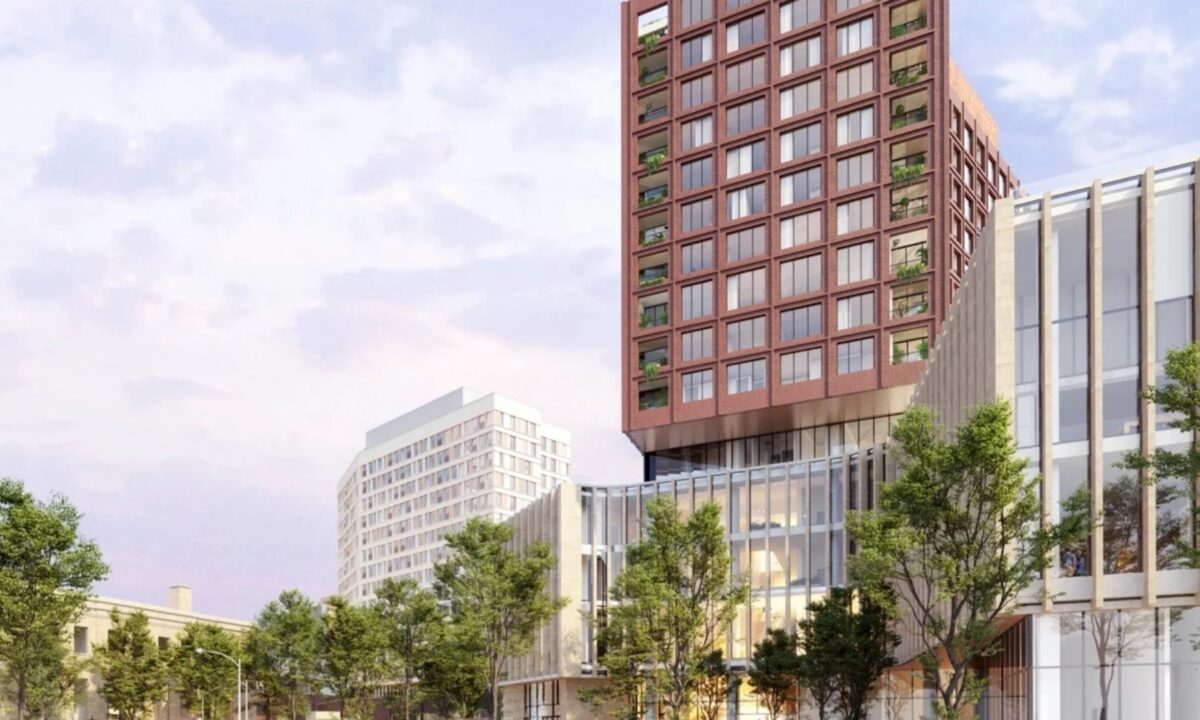
Windmill’s achievements offer encouragement at a time when some are questioning zero-carbon commitments. By holding fast to its One Planet Living commitments, the Fund is proving that sustainability and resilience go hand in hand.
For the real estate industry, the message is clear: zero-carbon, community-rooted development is both achievable and essential. Windmill’s One Planet Living Fund shows us what the future of housing can look like.
